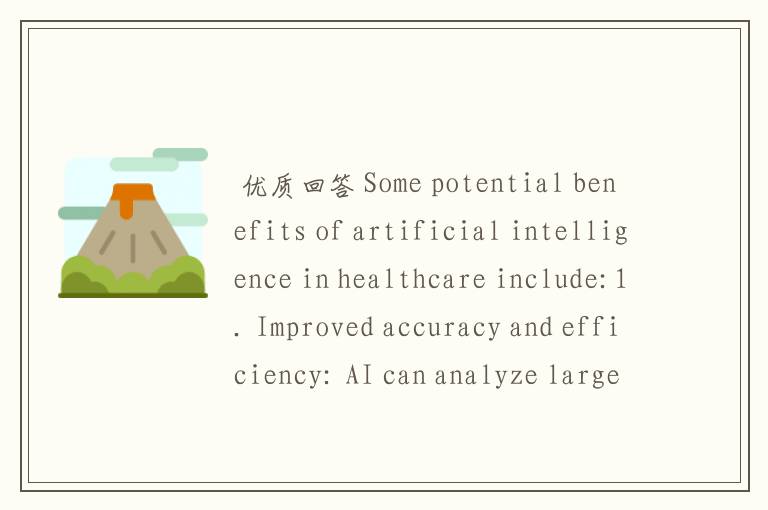- 1、
本文提供多篇内容参考,可直接点击跳转详细解答
(一)

优质回答Some potential benefits of artificial intelligence in healthcare include:1. Improved accuracy and efficiency: AI can analyze large amounts of data quickly and accurately, helping healthcare professionals make more accurate diagnoses and treatment plans.2. Enhanced disease detection and prevention: AI algorithms can analyze patient data and identify patterns that may be indicative of diseases or conditions, allowing for earlier detection and intervention.3. Personalized medicine: AI can help tailor treatment plans to individual patients based on their unique characteristics and medical history.4. Remote monitoring and care: AI can enable remote monitoring of patients, allowing healthcare providers to monitor their condition and provide timely interventions when necessary.5. Streamlined administrative tasks: AI can automate administrative tasks such as scheduling appointments and managing medical records, freeing up healthcare professionals to focus on patient care.6. Drug discovery and development: AI can analyze vast amounts of data to identify potential drug candidates and speed up the drug discovery and development process.7. Patient education and support: AI-powered chatbots and virtual assistants can provide patients with information and support, answering questions and providing guidance.8. Improved patient outcomes: By leveraging AI to enhance diagnosis, treatment, and monitoring, healthcare providers can potentially improve patient outcomes and reduce healthcare costs.It's important to note that while AI has the potential to greatly benefit healthcare, it also raises ethical and privacy concerns that need to be addressed.
人们很难接受与已学知识和经验相左的信息或观念,因为一个人所学的知识和观念都是经过反复筛选的。茶恩阁关于茶叶的种植和管理技术介绍就到这里,希望能帮你解决当下的烦恼。
转载请注明来自,本文标题:茶叶的种植和管理技术有哪些~
本文地址:https://www.entea.com.cn/cyzs/945.html
